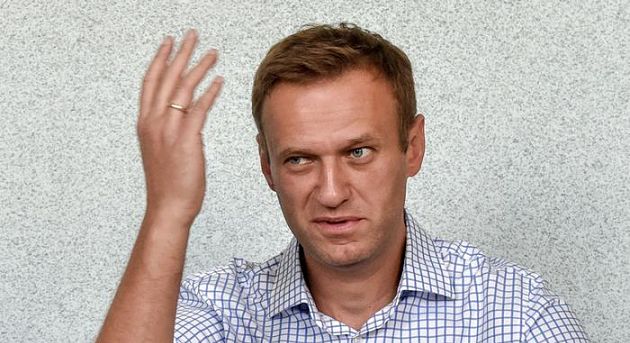There are politicians who are capable of growing and correcting their mistakes, and then there are those who get stuck on certain issues and lose their rationality. Yesterday, Alexei Navalny once again proved that he belongs to the latter category of politicians. In the past, he has allowed himself to make rude and xenophobic remarks, especially about Islam and Muslims. However, at some point, someone (but not us) might have gotten the impression that Navalny, who appreciates the passionate potential of Caucasians and is interested in their support, would behave differently in order to gain their support. This would have been more reasonable for him as a politician, but unfortunately his mind is deeply ingrained with blocks that, when activated, disable his rationality and make him behave not as a politician, but as a street xenophobe.
This is exactly what could be observed in his article entitled “What to do now. Our Plan for September 8 and Beyond” (https://navalny.com/p/6188/), dedicated to the events in Moscow. Let’s focus on one statement that directly affects many of our readers and one of the categories of potential Navalny supporters:
“Why doesn’t reason prevail? Why doesn’t Putin solve the situation in a correct and cunning way? Because the ideological power in Russia in 2019 is a mixture of a prison, an army and a village in Dagestan. The code says: we do not give in to pressure. We respond to calls for order with disproportionate aggression. It’s customary to shout what you’ve done to someone’s mother and to behave in a way that makes people think twice before dealing with someone who’s having a fit.”
The question arises: why did Navalny mention “a village in Dagestan” along with the negative examples of social culture, such as prison and the army? The answer is obvious – he clearly considers the “Dagestani village” to be worse than, say, a Russian village, where, according to him, it’s not “customary to shout out what you did to someone’s mother”. But in a Dagestani village it is.
Of course, it would be easy to express outrage at Navalny’s xenophobic bias, implying that the “Dagestani village” represents something uglier than modern Russian villages. And such a reaction would be entirely justified.
But we are interested in something else – how does Navalny, as a politician, form his opinion about certain phenomena, especially in the country he wants to lead? In this case, on what grounds does he judge what is “customary” in a “Dagestani village”? Has he ever been to one? Has he read books about it, written by its inhabitants, or at least seen reports from the region about the life of its people? If he had done so, he would hardly have made such foolish comments. However, judging by this situation, it seems that Navalny forms his opinions on such matters not by studying them, as a politician should, but by everyday stereotypes and clichés. And after that, how can people trust him, especially those whose homeland he insults with his remarks?
Finally, it would be nice if Navalny, if given the opportunity, would spend a few minutes of his time to understand how Dagestani villages actually live, especially those that have preserved or revived Islamic traditions (https://youtu.be/ferHnsaySwg). Perhaps then he would realize that the Russian government has nothing in common with them, and on the contrary, Russian opposition members have something to learn from these people…

